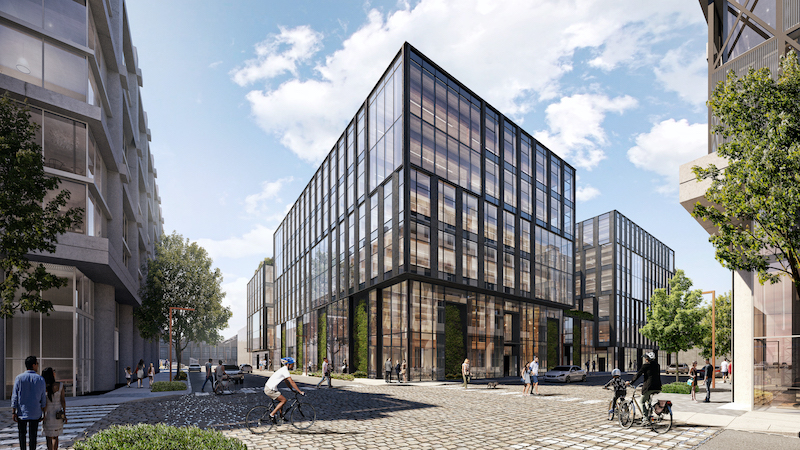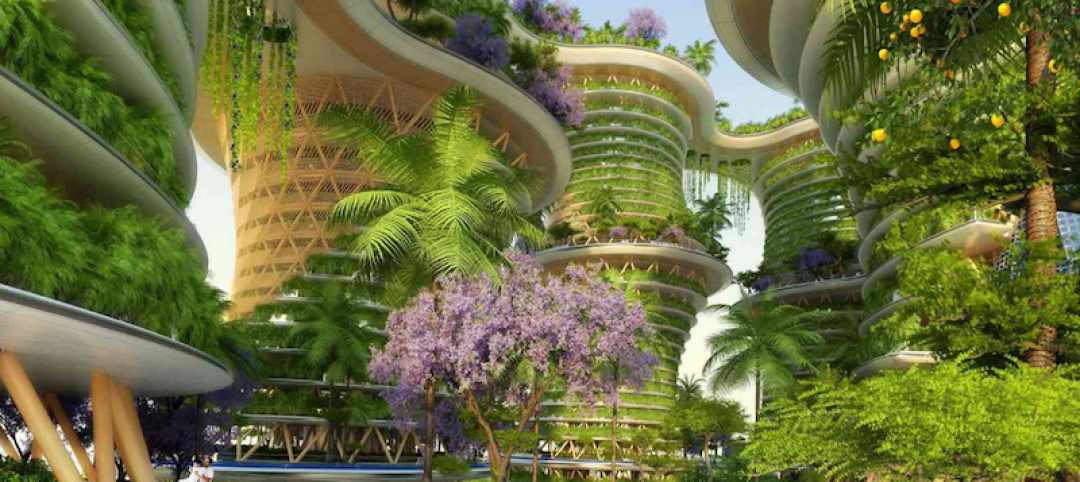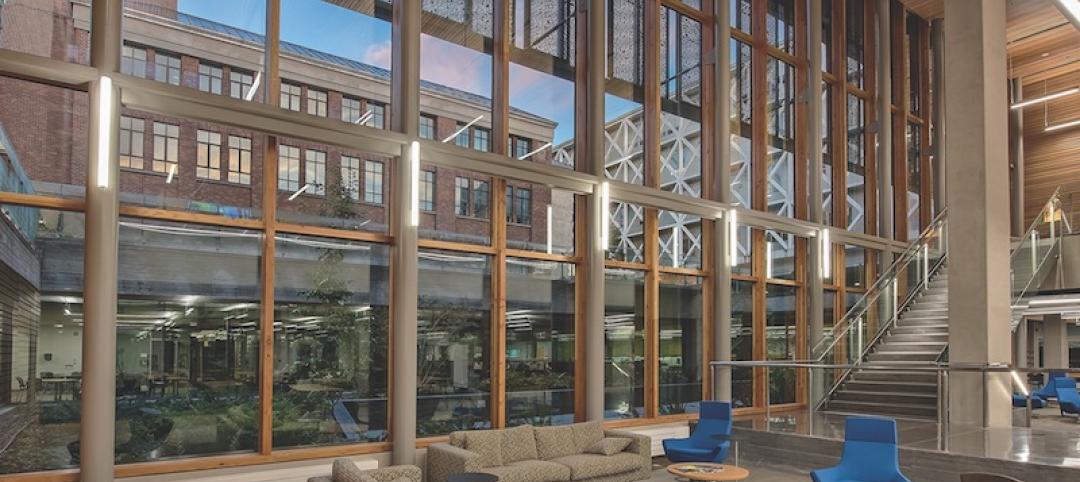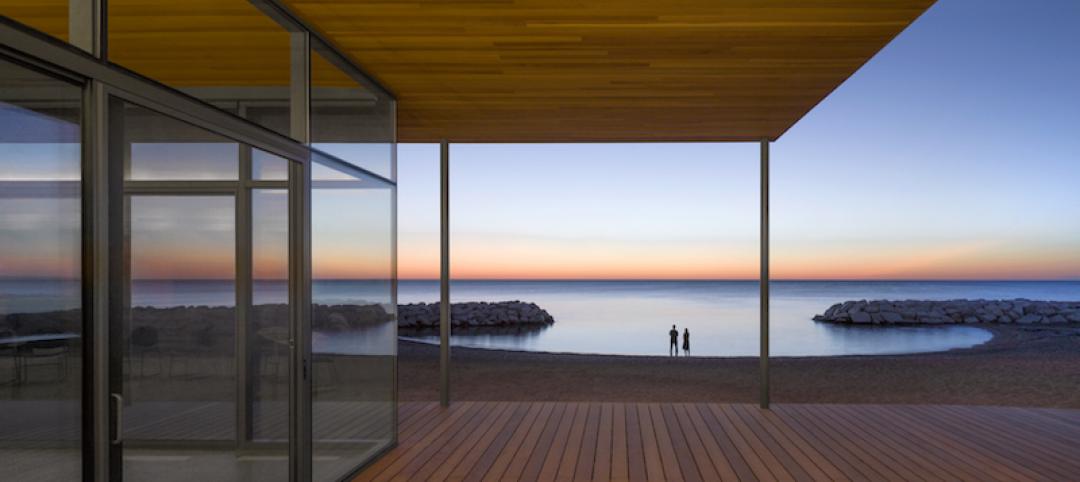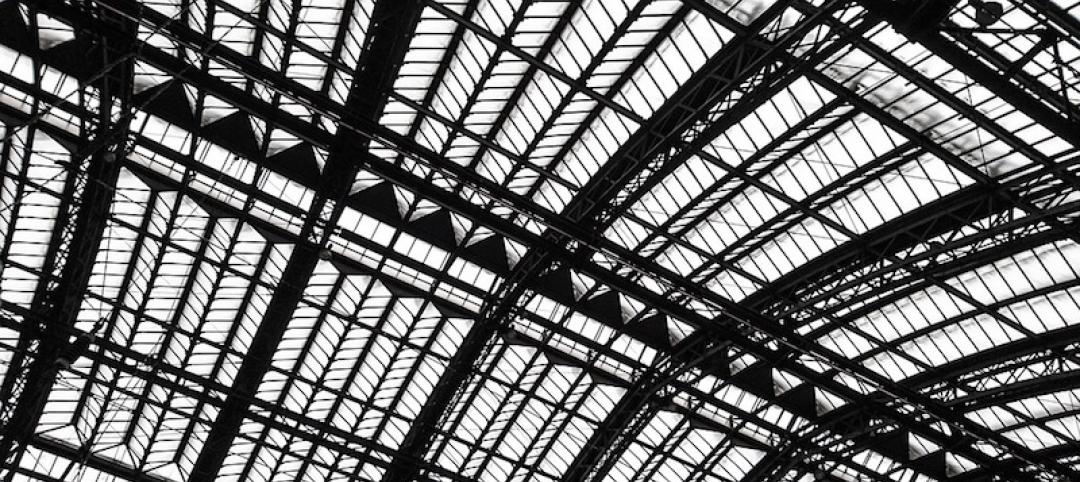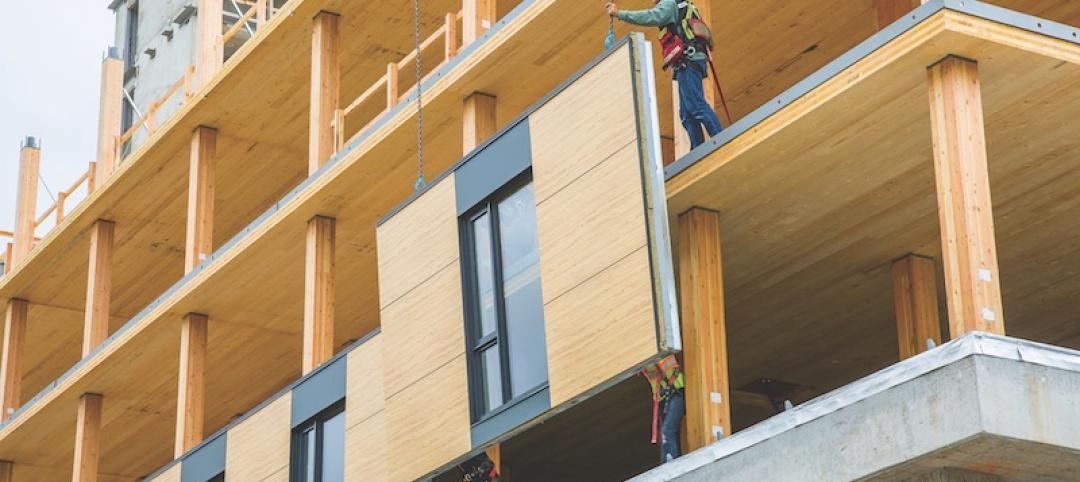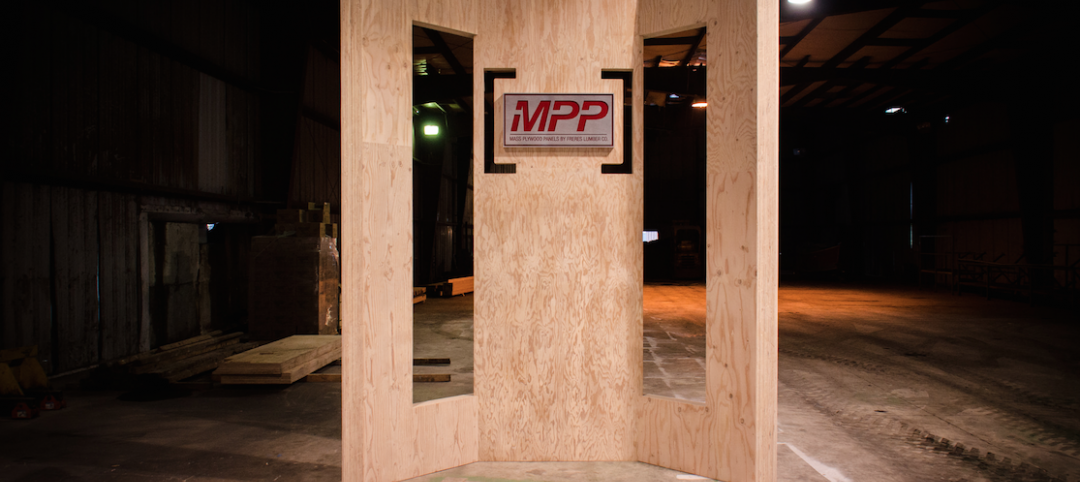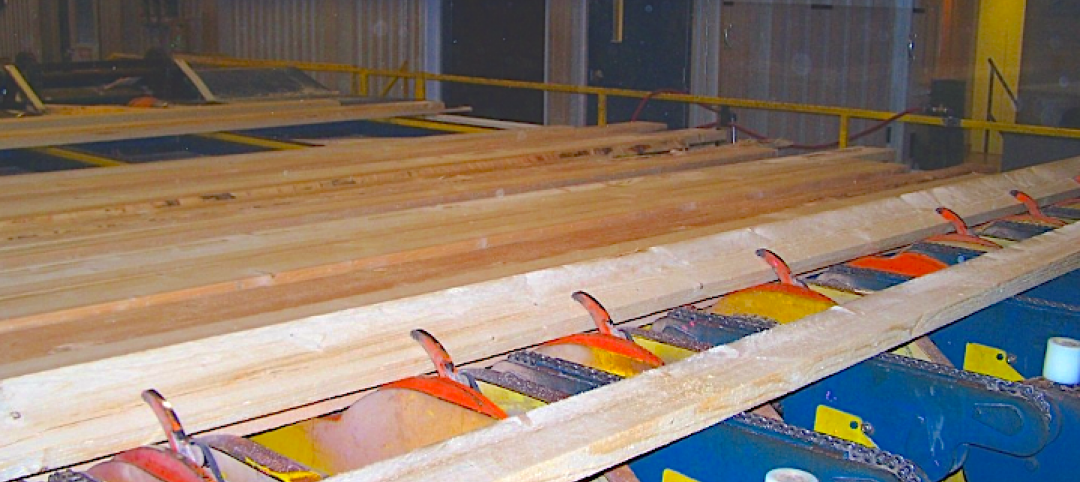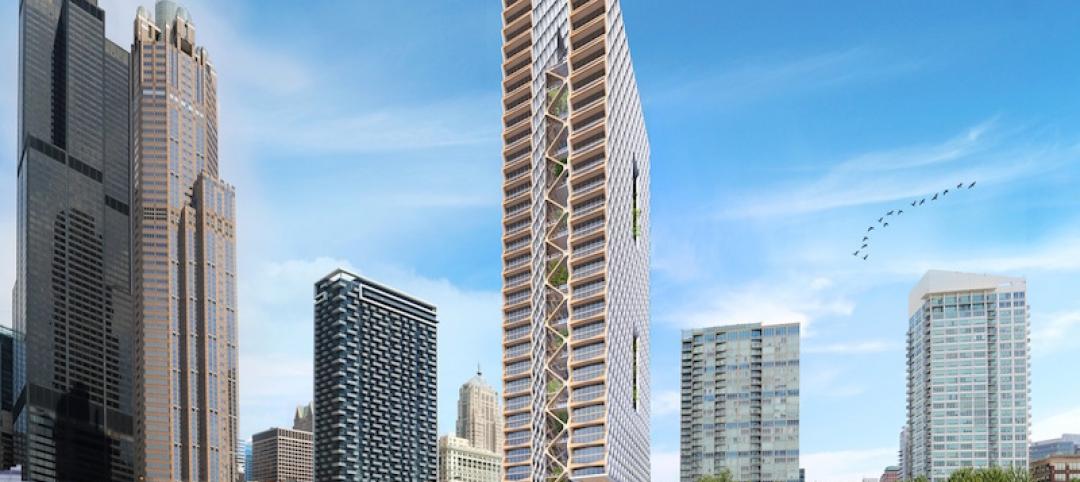The race for the biggest, tallest, boldest mass timber building is officially on.
The developer Brookfield Properties disclosed yesterday its intention to build a 310,000-sf, 85-ft-tall office building in San Francisco that will feature cross laminated timber floor slabs and glue-laminated timber columns and beams.
The project—known as Pier 70 Parcel A—will be part of Brookfield’s 28-acre $3.5 billion Pier 70 waterfront development. With this project—whose construction is scheduled to begin next spring—Brookfield lays claim to the largest office building made from mass timber in North America.
The project is subject to design approvals by the city and the Port of San Francisco. The design architect on this project is Hacker Architects, and the GC is Swinerton. The CLT and glulam components will be assembled with steel lateral seismic framing, and clad with metal panels finished to appear as raw weathered steel.
The six-story building’s interior will feature one- and two-story ceiling heights, and windows that range from 14 to 28 ft high. A cantilevered section will extend on four sides, with each corner used as a switching point for the direction of the beams.
Brookfield estimates that, by using mass timber, it will cut the building’s construction time by four to six months, compared to a similar sized concrete building. (Construction is scheduled for completion in the spring of 2022.)
See also: The University of Arkansas is now home to America’s largest mass timber building
Brookfield and Hacker point to other benefits from building with mass timber: its lower carbon footprint, its contribution to the building’s biophilic design, and its fire resistance compared to steel.
“The experience of a wood building is one of softness, depth, and light that makes it feel more expansion beyond its boundary,” said Corey Martin, a Principal with Hacker, in a prepared statement. “This building will have views through the structure to showcase the wood, the Bay, and pedestrian activity.” (Brookfield intends to include a retailer, restaurant, and bike lounge at the ground floor.)
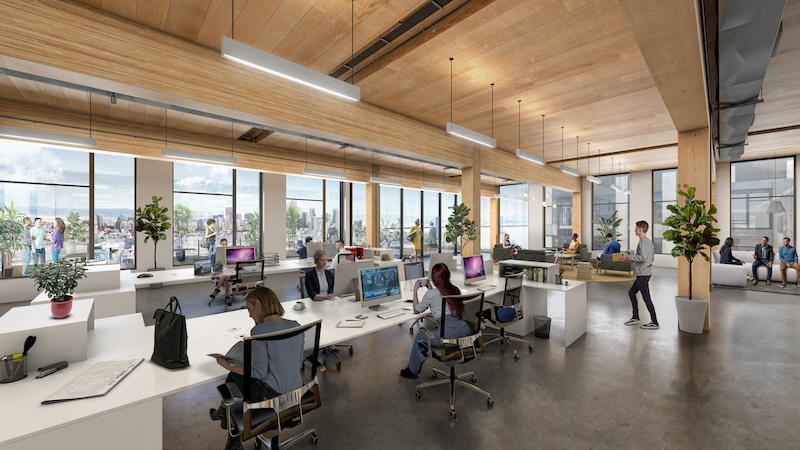
Aside from its lower carbon footprint, mass timber's aesthetic qualities are appealing to designers.
Pier 70 won’t be the first mass timber building in San Francisco, however. That honor will go to 1 De Haro, an four-story 60-ft-high office building developed by SKS Partners and designed by Perkins and Will. “Basically, it’s a very sophisticated Lincoln Logs set,” John Fisher, SKS Partners’ project manager, told the San Francisco Chronicle. “That’s how we explained it to our investors.” California College of the Arts is expected to break ground next spring on three pavilions made from mass timber on a concrete base.
California, which included mass timber in its building code in 2016, is playing catchup with other states—mostly in the Pacific Northwest—where mass timber has gained acceptance. Suppliers are responding to this demand, with three—Katerra, Vaagen Timbers, and SmartLam (through an acquisition)—having brought factories online this year that doubled the mass timber production capacity in the U.S., says Erica Spiritos, Swinerton Mass Timber’s preconstruction manager.
In October SmartLam—which now operates factories in Montana and Alabama—announced that it was planning to open CLT manufacturing facilities in ”major wood baskets” across North America. It will open three of these factories by 2022, which would increase the company’s overall annual production capacity to more than 17.2 million cubic feet.
British Columbia-based Structurlam, the leading supplier of mass timber in North America, on Dec. 9 announced that it would spend $90 million to open its first U.S. manufacturing plant, in Conway, Ark. Walmart, which has invested in Structurlam, will use 1.1 million cubic ft of mass timber—produced from Arkansas-grown trees—in the construction of its new Home Office campus. Structurlam's Conway plant—a retrofit of an old steel plant—is scheduled to open in mid 2021.
Another potential game changer could be the 2021 International Building Code that will include Tall Mass Timber provisions which allow the use of mass timber for buildings as high as 18 stories. Several tall-mass-timber projects have already been proposed in the U.S. in anticipation of the code provisions.
Related Stories
Sustainability | Apr 4, 2017
Six connected CLT towers create an urban forest in India
The mixed-use towers would each rise 36 stories into the sky and connect via rooftop skybridges.
Wood | Mar 16, 2017
Wood wall system delivers that rich, natural look
The use of Douglas fir glulam beams can obviate the need for steel beams, even for walls up to 14 feet in height.
Wood | Mar 2, 2017
These are the 2017 WoodWorks Wood Design Award winners
Winners were selected in categories such as wood school design, commercial wood design, wood in government buildings, and green building with wood.
Wood | Jan 13, 2017
Steel and concrete's take on tall wood
The American Institute of Steel Construction contends that the steel industry is a “world leader” in using recycled material and end-of-life recycling, and has made strides to lower greenhouse gas emissions below regulatory requirements.
Game Changers | Jan 12, 2017
Mass timber: From 'What the heck is that?' to 'Wow!'
The idea of using mass timber for tall buildings keeps gaining converts.
Wood | Nov 1, 2016
Oregon lumber provider unveils mass plywood panel for tall wood structures
Designed as an alternative for cross laminated timber (CLT), MPP is a large-scale plywood panel with maximum finished panel dimensions up to 12 feet wide by 48 feet long and up to 24 inches thick.
Wood | Nov 1, 2016
Norway Spruce approved for wall studs, floor and ceiling joists, industrial applications
The species is first new U.S.-grown softwood to be tested for strength values since 1920s.
Sponsored | Wood | Oct 26, 2016
Compelling conversations about wood: East and West Coast regional challenges
Fast-rising designers Ben Kasdan and Blake Jackson offer candid perspectives from both coasts on the merits—and challenges—of designing with wood and compare notes on how architects can change perceptions by dreaming big and pushing boundaries.
Sponsored | Wood | Oct 13, 2016
Engineered wood provides sustainable options, cost savings, and design flexibility
Designers choose engineered wood to deliver strength, stability, and a sustainable solution for complex structural designs
Wood | Oct 13, 2016
Concept from Perkins+Will could become the world’s tallest timber tower
River Beech Tower is said to be a part of a masterplan along the Chicago River.


